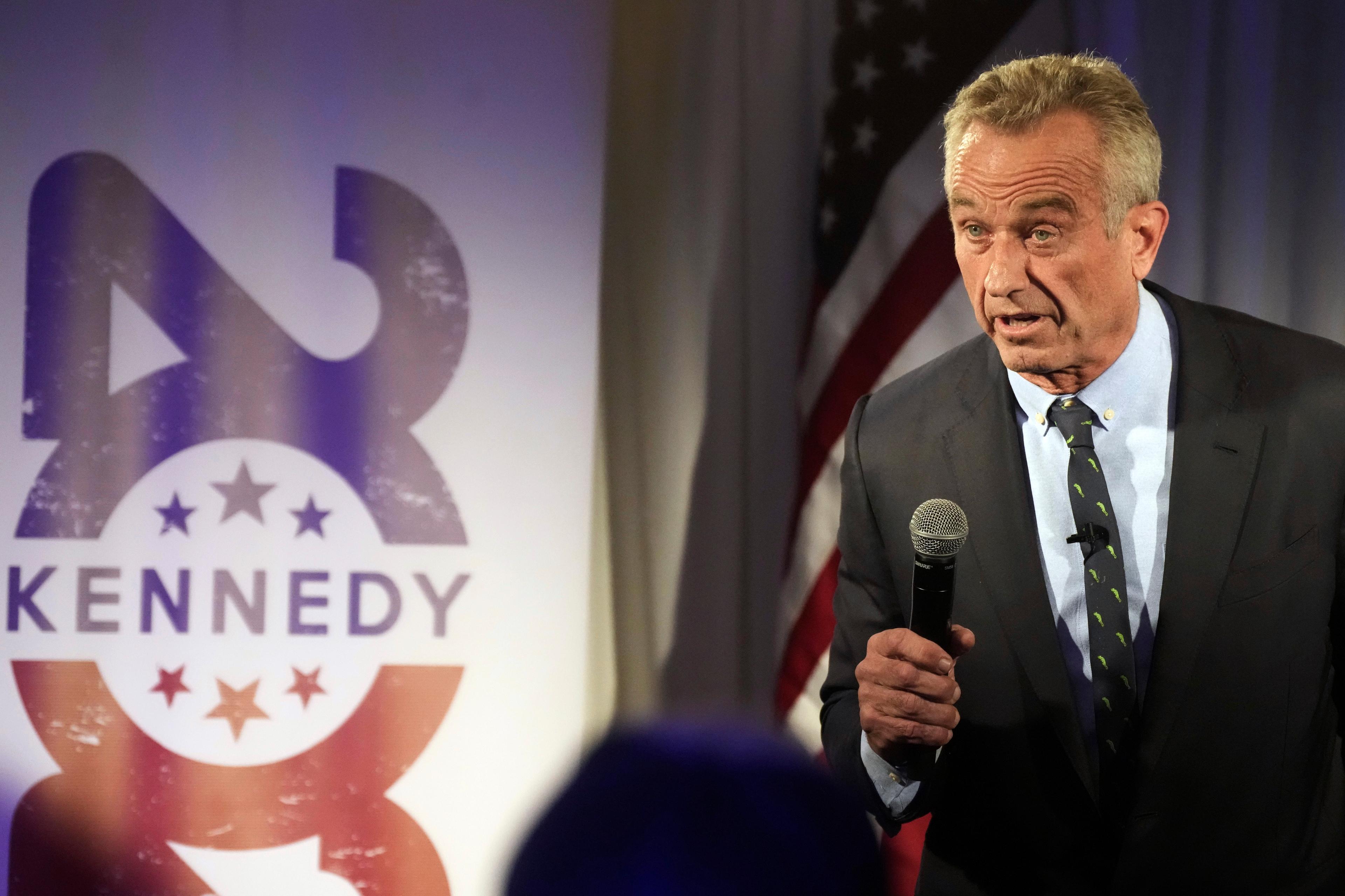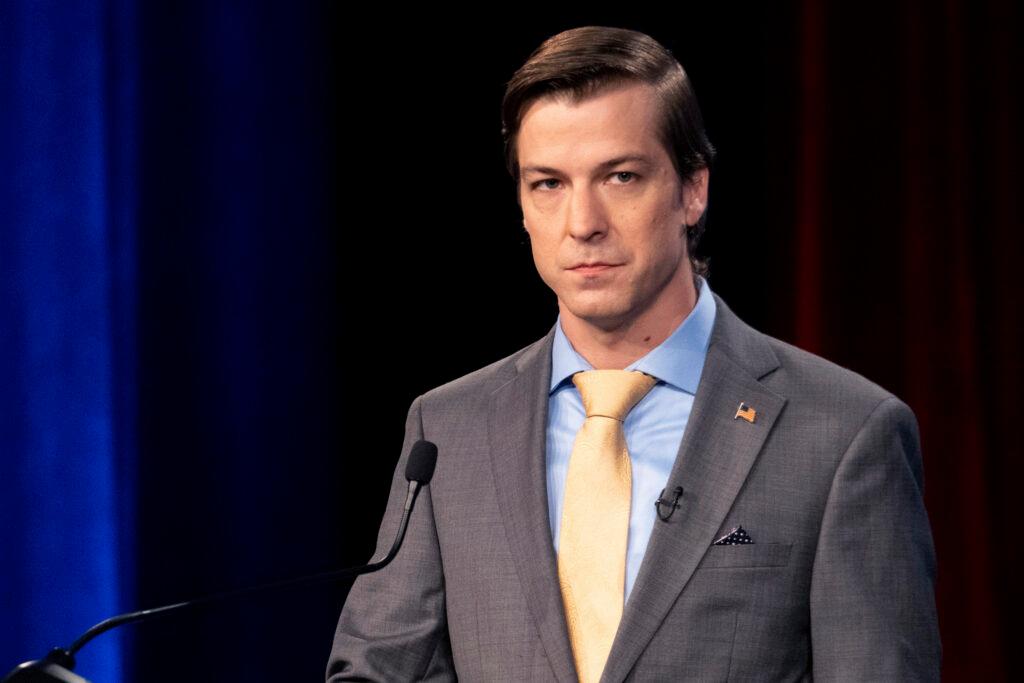
A fight over which candidate will represent the Libertarian Party on Colorado’s presidential ballot may be ending. The party’s national nominee, Chase Oliver, is set to appear on the state’s ballots as the Libertarian candidate, his campaign announced.
An effort to replace Oliver with independent candidate Robert F. Kennedy, Jr. appears to have failed. But Kennedy may still appear as an independent candidate in Colorado instead.
Libertarians have battled for weeks over which of two candidates would be their nominee in the state. State party leaders wanted to go with Kennedy. Others said the nominee should be Oliver since he won the party’s nomination at its national convention in May.
Despite Oliver securing a place on the ballot, Kennedy has a backup option: His campaign submitted thousands of signatures to guarantee him a spot on the ballot, no matter what happened with the effort to make him the Libertarian candidate. The state hasn't yet confirmed if he submitted enough signatures.
Why Oliver won this battle
Oliver’s paperwork was completed first, thanks to some fast thinking by one party member.
When the state party announced their plan to nominate Kennedy instead of Oliver, Caryn Ann Harlos was infuriated. She believed state party leaders were breaking their agreements with the national party and disobeying the will of the national convention.
Harlos, a Castle Rock resident who is also the national party secretary for the Libertarian Party, rushed to file nominating paperwork for Oliver after she heard of the state party’s plan to choose RFK.
That appears to have set off a few weeks of legal maneuvering, including an attempt by someone in the party to withdraw Oliver’s nomination. But the Colorado Secretary of State’s office rejected those efforts, saying that only Oliver and ter Maat could withdraw themselves — which, of course, they didn’t want to do.
“Under Colorado law, this is a complete filing for President and Vice President for the party and as of this moment, Chase Oliver and Mike ter Maat will be listed as the Libertarian Party’s nominees for President and Vice President on the November ballot,” read an email from Caleb Thornton, an official with the Secretary of State’s office, to Libertarian party members.
Any further questions, Thornton added, “are internal party matters for you all to discuss and pass judgment on.”

Harlos said the outcome was a win-win since both Kennedy and Oliver will likely appear on the Colorado ballot now.
“I’m really glad because Robert F. Kennedy should be a choice and he will be, as an independent. So Colorado voters win here ... I’m for more choices,” said Harlos, stressing that she was not speaking on behalf of the national party.
Jordan Marinovich, a spokesman for the state Libertarian Party, said they would “continue to pursue avenues to implement our 2024 electoral strategy,” promising more information later.
Hannah Goodman, the state party chair, implied the fight wasn't over. "You never know how things will turn out in the end," she wrote. Asked if she planned to sue, she said the state party has "a few irons in the fire!"
Membership in the Libertarian Party is a distant third behind Democrats and Republicans in Colorado.
In 2020, the Libertarian presidential candidate, Jo Jorgensen, took about 52,000 votes in the state, or 1.6 percent of the vote. But it’s possible that minor candidates will do unusually well this year. A recent edition of the Rocky Mountaineer poll found Kennedy had the support of 12 percent of respondents, though the pollster noted that surveys often overstate third-party support.
Deeper conflict for Libertarians
The fight points to deeper fissures in the party.
Some Libertarians in Colorado wanted to hitch their wagon to Kennedy because they saw an opportunity for him to bring money and attention while aligning with at least some of their values.
But the rejection of Oliver, the national candidate, was also about LGBTQ+ issues. Oliver has affirmed his support of non-surgical gender-affirming care for minors, and LGBTQ+ rights more broadly. At the same time, a growing faction within the party has taken more culturally conservative views on gender.
Meanwhile, some Libertarians were upset that the Colorado party tried to reject the national nominee. They said that Kennedy, a former Democrat, is a liberal and holds few libertarian values.
This kind of thing has happened before. In Arizona in 2000, the Colorado-born sci-fi author L. Neil Smith appeared on ballots instead of the national Libertarian nominee






